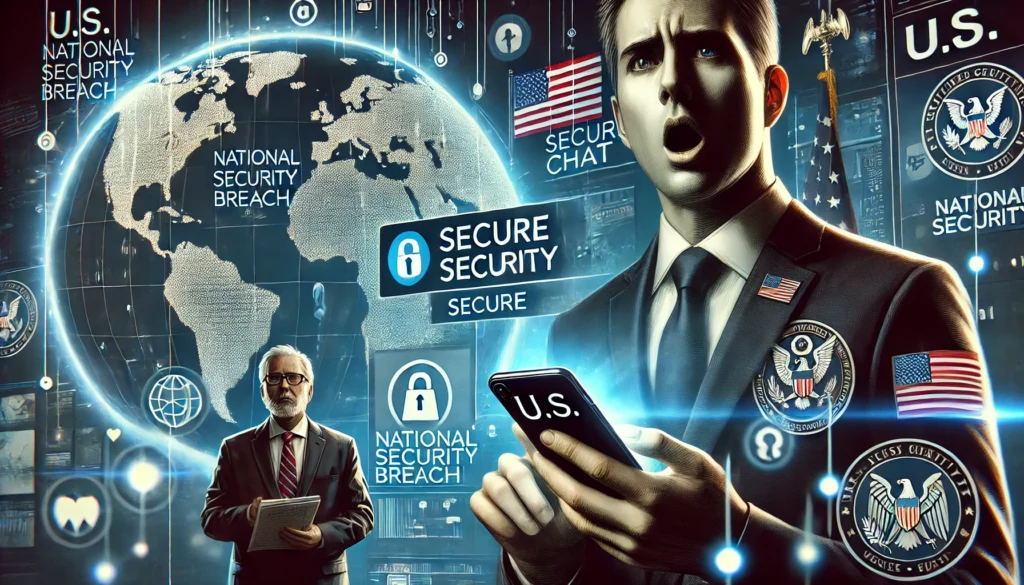Published: March 25, 2025 ✍️ Author: Global World Politics Desk 🌐 Source: GlobalWorldCitizen.com
(GWC) — Washington, D.C.:
A growing controversy is shaking the U.S. national security establishment after Mike Waltz, National Security Advisor under President Donald Trump, reportedly allowed access to a private group chat where top officials were discussing potential military action against Houthi rebels in Yemen. The accidental addition of Jeffrey Goldberg, editor-in-chief of The Atlantic, has raised serious questions about U.S. information security, chain of command protocols, and transparency.
Waltz claims he has “never communicated” with Goldberg, despite the journalist confirming he was added to the encrypted Signal group—named “Houthi PC small group”—where high-level officials were reportedly discussing sensitive military strategies.
 What Happened?
What Happened?
Goldberg says he was surprised to be added to the chat, thinking it was a hoax. However, when the U.S. military carried out strikes later that day—strikes discussed in the group—he realized the access was real. The chat reportedly included Vice President JD Vance, Secretary of State Marco Rubio, Defense Secretary Pete Hegseth, and senior adviser Stephen Miller, among others.
Trump has downplayed the severity, blaming a Waltz staffer for the mistake and defending Waltz as “a good man” who has “learned a lesson.” But behind the scenes, tensions are reportedly escalating. According to The Wall Street Journal, Trump privately expressed frustration, questioning how Waltz “could be so sloppy.”
 Fallout Inside the White House
Fallout Inside the White House
Officials are now debating whether Waltz should step down voluntarily to prevent President Trump from needing to dismiss him outright. Sources inside the administration told Politico that frustration is widespread, with one official bluntly calling Waltz “a f—ing idiot.”
Despite Trump’s public defense, internal reviews are underway regarding the use of Signal by top security officials. Trump himself admitted to not being familiar with the app but said it may be necessary in “situations where speed matters more than security.”
 What’s At Stake for Global Security?
What’s At Stake for Global Security?
This breach of internal communications—whether classified or not—raises alarm not just domestically but globally. If top U.S. officials can inadvertently share operational details with journalists, what does this mean for global alliances, diplomacy, and military coordination?
The White House claims the chat didn’t include classified data, but Goldberg and The Atlantic reported it involved specific target lists, weapons deployments, and attack sequencing for U.S. strikes in Yemen. A national security spokesperson confirmed the chat was authentic, even if the information shared is disputed.
 Political Reactions from Washington
Political Reactions from Washington
Members of Congress from both parties are alarmed:
Rep. Don Bacon (R-NE) accused the White House of a cover-up and blamed Defense Secretary Hegseth directly, saying classified information was “put out by the secretary of defense.”
Senate Majority Leader John Thune (R-SD) acknowledged “errors in judgment” and called for safeguards to prevent similar incidents.
Other lawmakers called the entire situation “sloppy” and “unacceptable,” pointing to the high stakes of military operations abroad.
Meanwhile, House Speaker Mike Johnson and other Trump allies continue to back Waltz, emphasizing stability over political fallout.
 A Bigger Picture: Leadership, Technology, and Accountability
A Bigger Picture: Leadership, Technology, and Accountability
This episode is more than a domestic mishap. It is a reminder to global citizens and governments that digital communication tools, no matter how encrypted, can create vulnerabilities if misused—even unintentionally.
The stakes are especially high as military activity intensifies globally and diplomatic relations become increasingly fragile. Incidents like this affect trust in the U.S. security system, and ripple across global networks—from NATO to the Middle East to tech developers building tools for military and diplomatic use.
 Global World Citizen Reflection
Global World Citizen Reflection
This situation is a case study in:
Digital Diplomacy Gone Wrong
Risks of Private Tech in Public Leadership
The Importance of Accountability at the Highest Level
Why Global Citizens Should Demand Transparency in Defense Decisions

In an interconnected world where information can cross oceans in milliseconds, leadership demands discipline, responsibility, and awareness. The future of national—and global—security depends on how seriously those at the top take the tools in their hands. Global World Citizen will continue to monitor developments with clarity, courage, and a commitment to truth.

